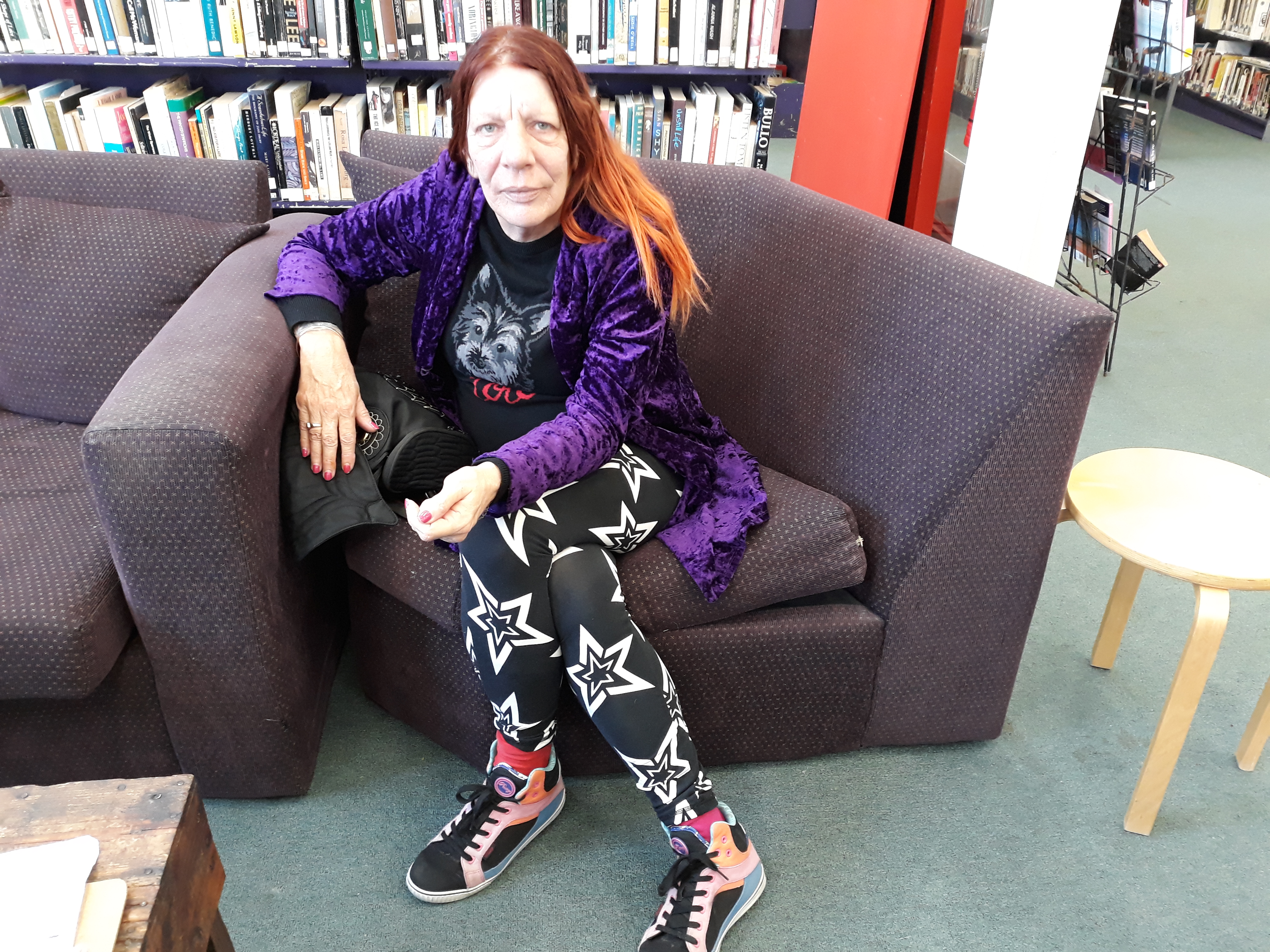
There is no such thing as a singular “indigenous”. The diversity of life experiences and negotiation of identities can result in people of aboriginal heritage having different degrees of engagement with our dominant western culture for families or individuals. The result is a mosaic.
Engagement with one culture or another can fall at an extreme: from total immersion to total exclusion. Some individuals bridge the divide between two cultures, and after a journey that’s anything but straightforward, can create a path that fosters the kind of success in life that they are seeking. Julie and Jamie have had vastly different experiences, but both have taken advantage of opportunities offered to work in the media to negotiate the cultural divide.

Jamie began his career in the media at Eora TAFE and developed what he called a “love for the camera”. He studied film and screen and got some interesting opportunities through one of his teachers to work on films that went on to achieve cult status: Last Cab to Darwin, and Unindian. These were entry level roles which he took on as unpaid work, and they opened his eyes both to the uncertainty of the industry and the prospect of a more sustainable career – in journalism.
Once again, the willingness to take on unpaid work in the media opened the way for further opportunities. Jamie joined the ABC as an intern, saying to himself
“I’m gonna prove that I belong at the ABC. I’ll do it for three or six months or whatever they give me, because as soon as that six months is over, how can they get rid of me if I prove that there’s no-one there who can do what I do?”
Jamie’s determination has paid off. He’s in transition from being a trainee on an indigenous certified program to looking for full time employment there. He’s made good connections with household names like Stan Grant and Leigh Sales. What is his strategy for success? “I’ve been in just about every area of the ABC that you can imagine. I’ve tried to be an allrounder. You have to do what you love.”
Jamie feels that more representation of indigenous people is needed in the high profile areas of news and radio. But that’s not where it ends. “I believe strongly that I can get to where I need to be without using the aboriginal card. I don’t feel I need the title of the “indigenous person”. I have enough of a reputation now so that I could apply for a camera job and I could possible get it because I’m at that level now where I feel like to know what I’m doing.”

There’s no doubt that Koori Radio at Redfern gives an opportunity for indigenous talent to be recognised. It has the happy mix of music, news, community information and discussion that makes a community radio station successful. Julie is a volunteer presenter there. She’s on air on Saturday mornings with Kookaburra George. Before that she did some time at 2SER with the Uni students even though she didn’t have the same level of qualifications, and learnt a lot. Julie worked on the Jailbreak program – stories from prisoners – once a week. She still does the Christmas Day show with Jailbreak.
Homelessness is something that Julie feels particularly strongly about. It’s a trap for many indigenous people. She should know, she was homeless in Melbourne for a number of years. Luckily for her, she had some help to escape it, over a period of time.
“I think people have got to remember that homelessness takes a little while to reorganise yourself once you find somewhere to live. It’s a hard road and people just have to keep trying. Employers like to know that you’re trying. What I would suggest is that people do volunteer work – get your references, get your skills, try and hold down a place for about twelve months because employers like to see that.”
Julie had help with navigating the myriad paperwork and services from someone from a church mission who told her that she didn’t deserve to be in her situation, but a Housing Commission flat still took fifteen years to come her way. She’s continuing with her volunteering at Koori Radio, and has gained certificates in peer education, primary care and health and outreach. She is just about to start working with people with a disability.
Both Julie and Jamie have woven a career path using volunteering in mainstream and community media coupled the resources available to them as indigenous Australians. There could be no better way to reconcile what could otherwise have been a wide cultural divide.
